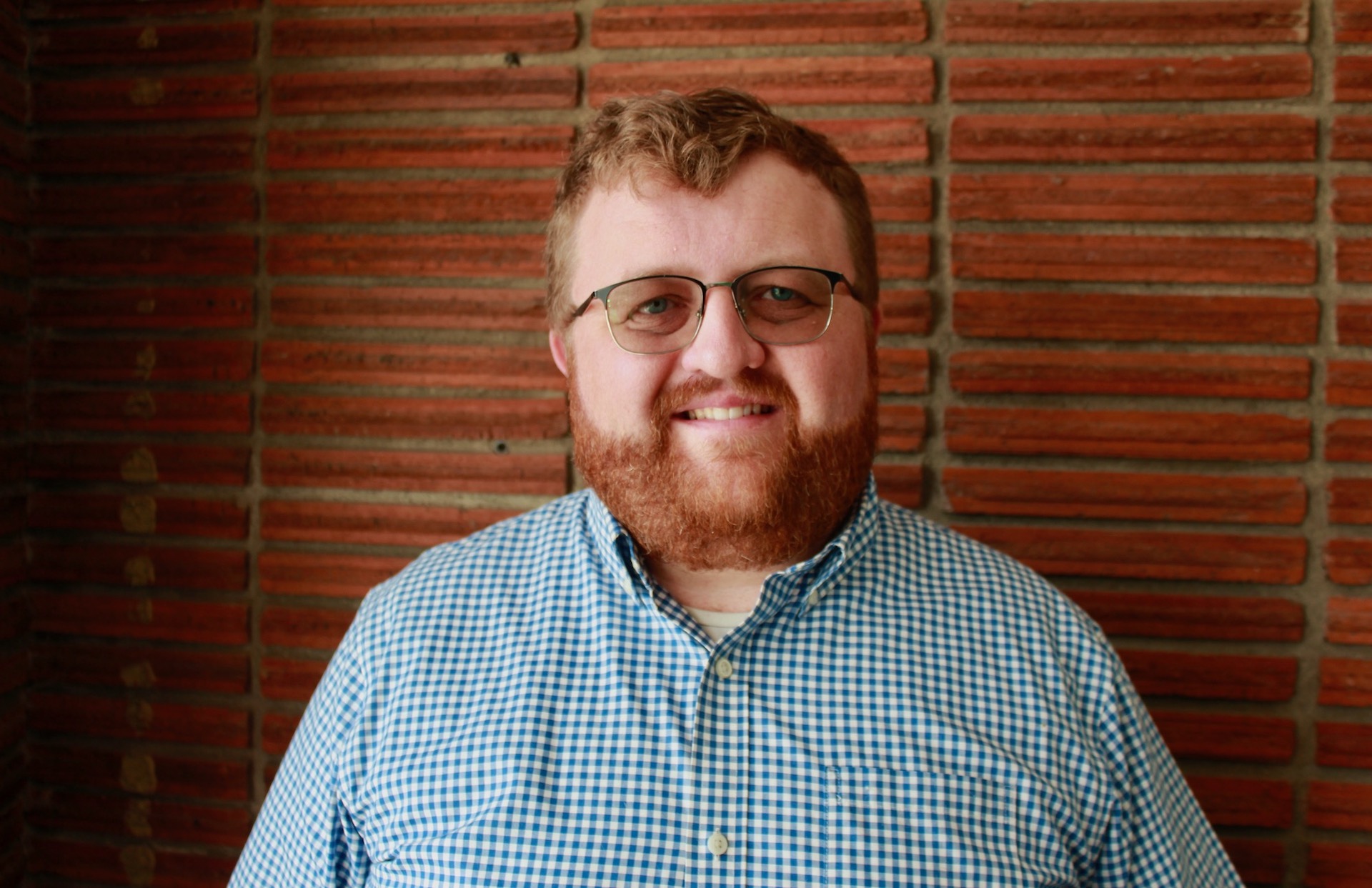There’s a Japanese proverb that goes something like this: “Better than a thousand days of diligent study is one day with a great teacher.”
What can be said about teachers that hasn’t been said a thousand times? Every generation leans on the guidance and knowledge that teachers provide, but it’s no secret the job can be rather thankless: chronically underpaid with difficult working conditions and a general lack of societal appreciation.
But as the key to accessing comprehensive education, the importance of teachers cannot be overstated. More educational opportunities lead to better employment options, raising the overall wellbeing of a country and its citizens. Around the world, every extra year of schooling translates to an average of 9.7% increase in hourly earnings. It may sound like a cliché, but at a macro level, investing in education truly means investing in the future, and teachers are the core asset.
However, the Covid-19 pandemic has dealt teachers and students across the globe a hard blow. During the first year of the pandemic, education systems were fully closed for in-person learning for 141 days on average. In South Asia and Latin America and the Caribbean, closures lasted for 273 and 225 days, respectively.
Heightened job uncertainty understandably led many to change professions, or discouraged potential new recruits from going into teaching in the first place. This has exacerbated an already acute global teacher shortage. In the United Kingdom, one in five teachers who earned their qualifications in 2020 have already quit. Worldwide, an additional 69 million teachers are needed to achieve universal basic education by 2030. The largest deficit is in sub-Saharan Africa, where 15 million teachers need to be recruited to reach the region’s 2030 education goals. The World Bank has called it “the worst crisis in education of the last century.”
But despite everything, the profession perseveres. Thousands of people across the world, fully understanding the impact of their work, continue to walk into classrooms every day and do the best they can with the resources they’re given. The ReThink Quarterly spoke to teachers from across the globe to learn more about their lives on the frontlines of education.
Bangladesh
POPULATION
171.2 million (2022)
TOTAL NUMBER OF TEACHERS
627,193 (2021)
AVERAGE MONTHLY PAY
11,000 to 26,590 Bangladeshi taka (BDT, $101 to $220)
TEACHER-STUDENT RATIO
1:38 (secondary level, 2021)
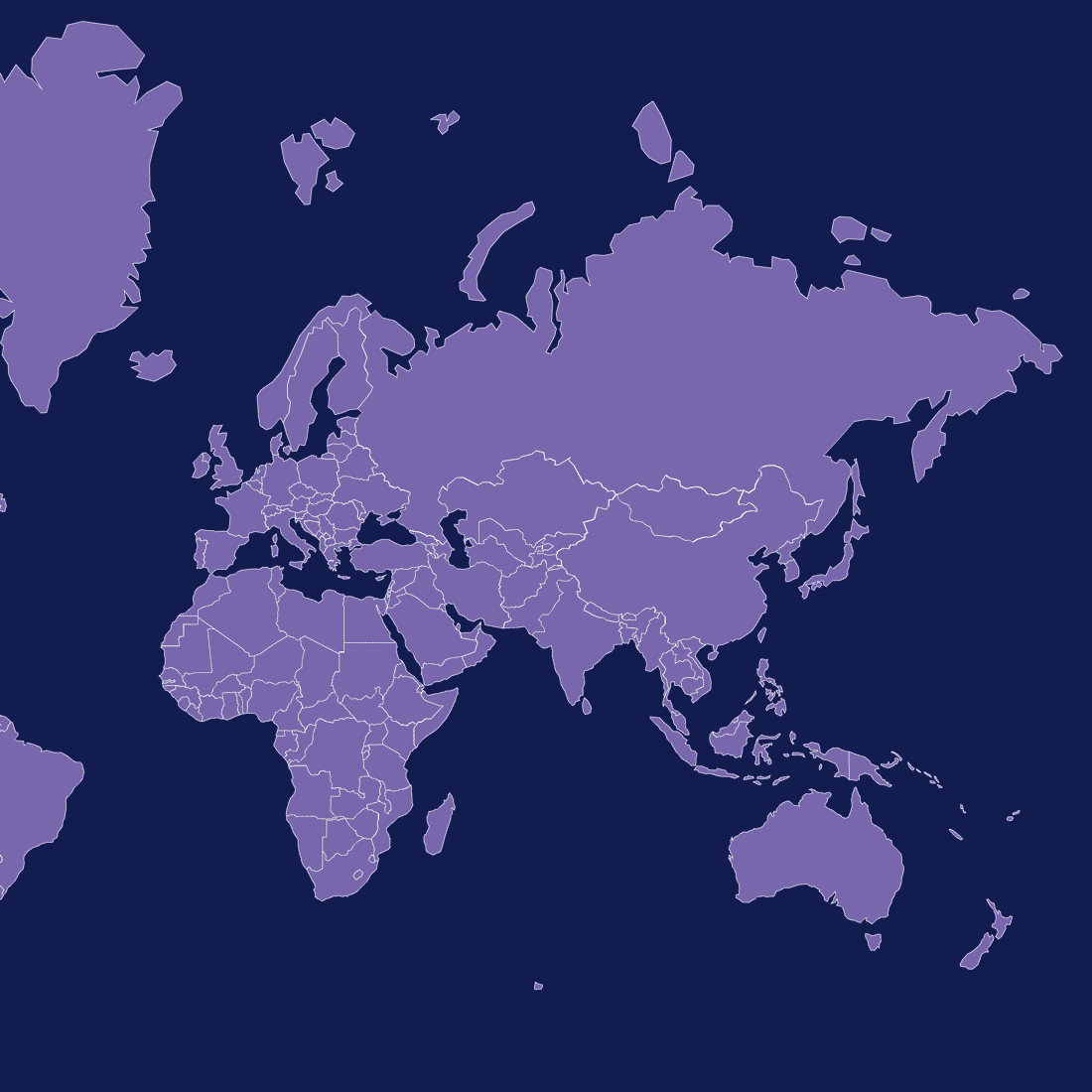
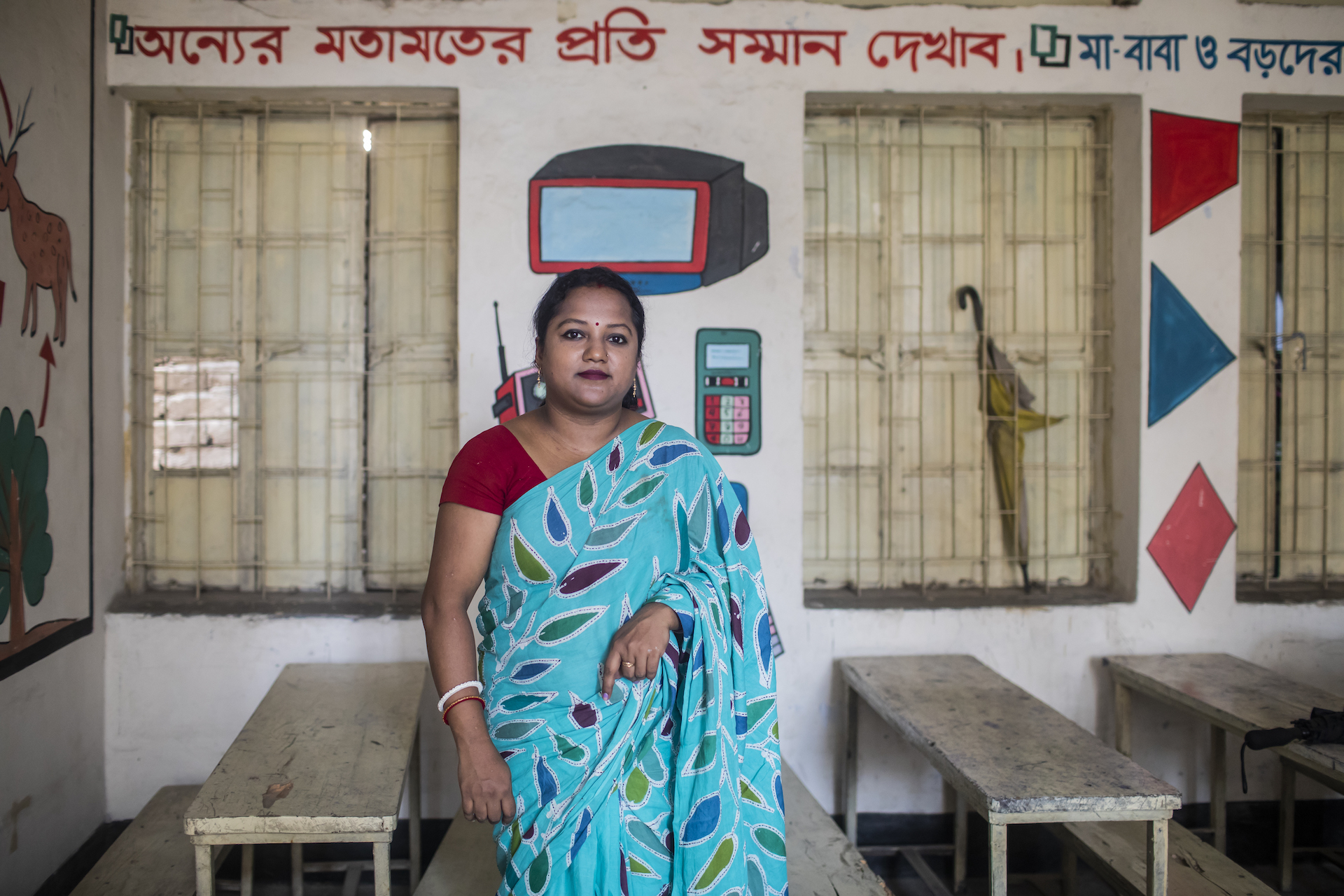
Pinkey Bhowmick, 35
Dhaka, Bangladesh
I currently work as a teacher in a primary school. I live with my husband, and I am a mother to my lovely 5-year-old son.
During my pursuit of a bachelor’s degree in economics, the idea of becoming a school teacher never crossed my mind. In all honesty, I wasn’t sure at all what I wanted to be back then. However, due to peer pressure, I reluctantly sat for the teacher recruitment exam and, to everyone’s surprise, got selected. It has been nearly 15 years since then, and despite the bittersweet journey, I have remained dedicated to this profession.
What has truly kept me attached to teaching, and what I find most fulfilling about my role, is the opportunity to interact with these young children and positively impact their day. I have the privilege of starting their mornings with words, rhymes and songs that celebrate the beauty of life, leaving a lasting impression on them.
One issue that deeply concerns me is the lack of subsidized or free meals for our students in government primary schools. The majority of our pupils come from lower-income families, where parents often struggle with menial jobs and cannot provide proper lunches for their children. Teaching hungry children is a distressing experience.
Currently, after nearly 1.5 decades of service, my monthly salary amounts to around 30,000 BDT ($275) altogether. I began with a mere 4,500 BDT ($40) per month. Unfortunately, this income is nowhere near sufficient to sustain a decent living in today’s economy. Thankfully, my husband also works, and together we manage to make ends meet.
Teaching is often referred to as a noble profession, and I couldn’t agree more. It holds tremendous importance as we shape and educate the future generations with essential values. However, our salaries fail to reflect that significance. Many of my classmates who opted for private company jobs now earn three to five times more than I do. Being a part of this “noble profession,” it is disheartening to feel undervalued in terms of compensation.
I am considering exploring better job opportunities with higher salaries, where I can still apply my experience of working in the education sector. My family and elders encourage me to pursue something secure and stable, so government jobs are my goal. In preparation, I am studying and plan to sit for the recruitment exams. — as told to Redwan Ahmed
Japan
POPULATION
125.1 million (2002)
TOTAL NUMBER OF TEACHERS
895,522 (2022)
AVERAGE MONTHLY PAY
472,701 Japanese yen (JPY, $3,300) (secondary level)
TEACHER-STUDENT RATIO
1:11 (secondary level, 2020)

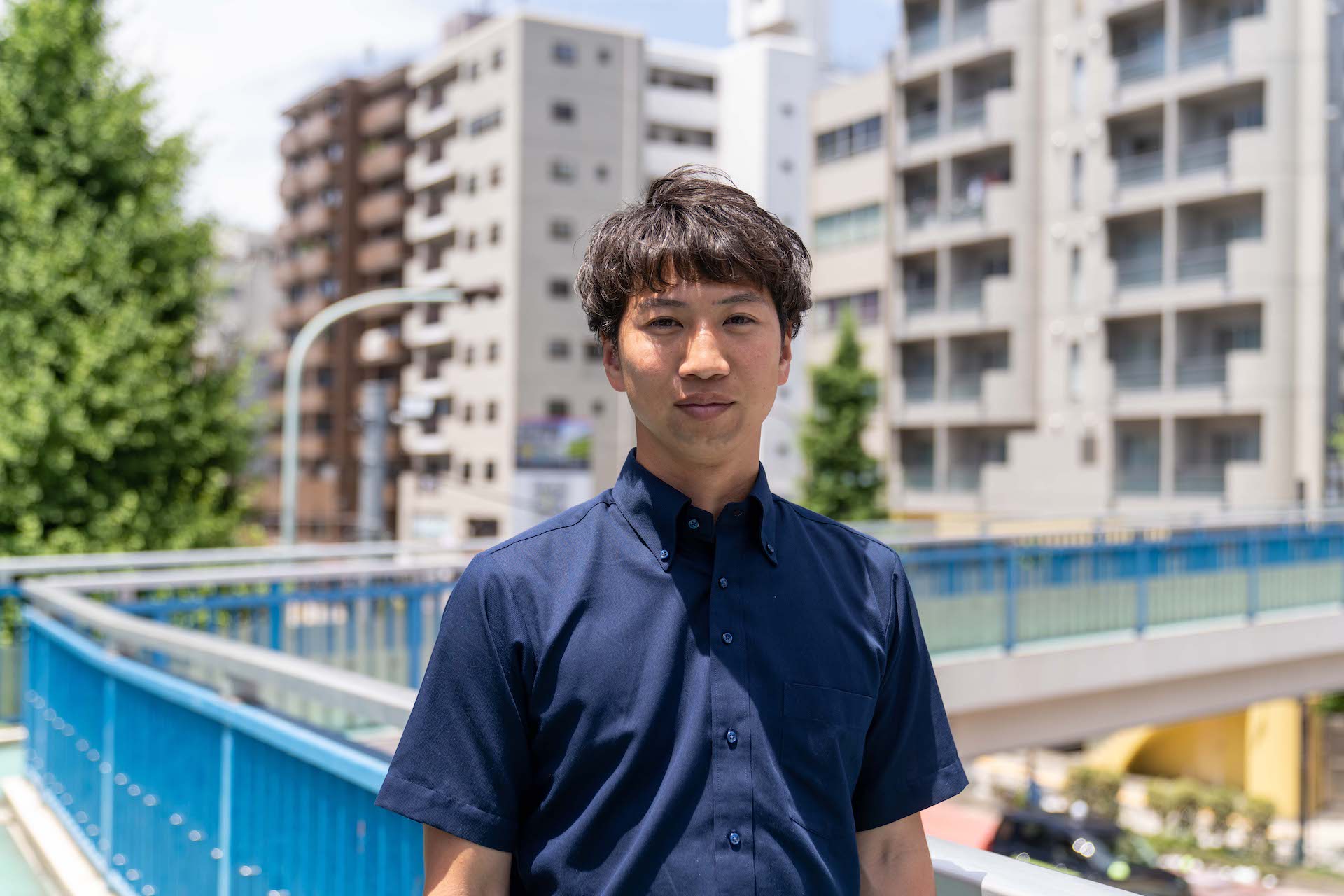
Atsuhide Noda, 31
Yokosuka, Japan
I have always questioned things since I was a small child. Some of my teachers never answered simple questions, such as, “Why can’t I use a calculator for division?” Others did. I want to support children like me, because I’ve been supported by good teachers.
I was born and raised in Yokosuka City and have been teaching at a local public primary school for five years. Before this, I worked as a community education employee for a nonprofit organization in Kesennuma City, which was hit by the Great East Japan Earthquake in 2011. After I graduated from university, where I majored in education, I took a diversion to learn about the resilience and recovery of disaster areas. This experience has allowed me to work with a broader understanding of education than I would have gained if I had been posted to a school straight out of university.
What I love about teaching is being able to share the moment when a child learns something and their face lights up. I enjoy spending my days drawing and playing with them. The hard part is the paperwork. I arrive at work at 6 a.m. and leave around 5:30 p.m. Other teachers often arrive at school at around 7:30 a.m. and leave around 8 p.m. Teachers have a one-hour lunch break, but cannot take time off to prepare for classes. Saturdays and Sundays are holidays and I get a good rest, but about 70% of teachers go to work on either of those days to complete administrative tasks.
My monthly income is 320,000 JPY ($2,213) before taxes. In addition, I receive rent subsidies of up to 28,000 JPY ($194) and subsidized transportation costs. My monthly overtime is around 60 hours, but it can be around 80 to 90 hours for other teachers — but only 4% of our monthly income is added to our wages for this work. This figure is currently being discussed by the government with a view to revising it to 10%.
Despite annual salary increases, wages do not increase at the same rate as prices in Japan. Teaching is no different. I am a property owner and have some financial freedom, but a young teacher with only a teaching job cannot save enough money or live alone on this income.
In the future, I would like to train teachers. When graduates start teaching immediately after university, it is easy for young teachers to fall ill due to stress caused by the demands of the role and the shortage of staff. But I believe we don’t have to become teachers straight out of university. I didn’t; I want to broaden the options. — as told to Taro Karibe
Norway
POPULATION
5.5 million (2022)
TOTAL NUMBER OF TEACHERS
78,652 (2021)
AVERAGE MONTHLY PAY
34,492 Norwegian kroner (NOK, $3,373) (secondary level)
TEACHER-STUDENT RATIO
1:9 (secondary level, 2022)
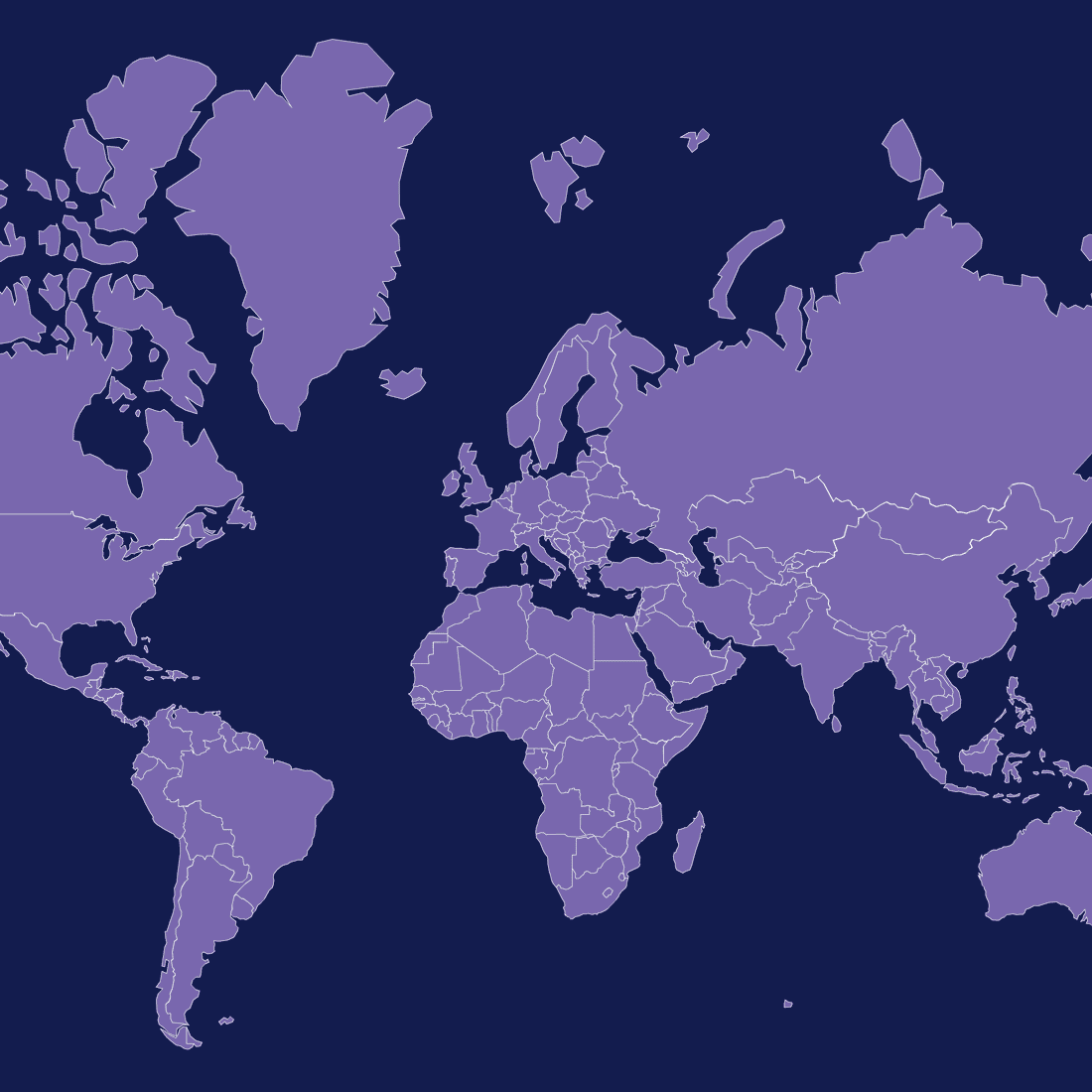

Karoline Hamre
Bergen, Norway
I started as a teacher at a primary school seven years ago. You never know what the day is going to bring as a teacher. My mistake was thinking that being a teacher would be less demanding than it is. During the pandemic, I worked all hours of the day without getting paid overtime. Most teachers work a lot after the school day is over.
There is a lot I value about the education system. Watching children succeed and unfold gives me joy. What I don’t like about my job is the fact that I get less and less time doing what I’m trained to do: teach and create connections. More and more responsibilities are put on teachers from parents and society. Those increased demands eat away valuable time.
I am not only a teacher. I have a thousand different roles. Teaching is a fraction of what I do. Many children struggle with psychological or physical issues. Sometimes I have to act as a nurse for pupils with epilepsy or give injections and medicine. The responsibility is enormous. It was a shock when I started as a teacher.
A regular teacher salary in Norway is $60,000 annually and requires a master’s degree. With inflation, the pay is not good compared to the work we put in. Salary is one of the reasons many Norwegian teachers leave their jobs or go back to studying.
I cannot say that I have noticed my salary increasing from when I first started in this job. Every time you take another step up the seniority ladder, which you do every second year, you get a couple hundred dollars added to your salary. After the yearly public wage increase, you get an extra couple hundred. But it isn’t even close to what we deserve.
If I’m going to stay on as a teacher, I need more influence over my profession. This fall I’m taking a course in leadership, so that I can eventually end up as a school principal. I like working in the classroom, but with the way the situation is now, I can’t affect change to the bigger picture. I’m devoted to becoming a principal within five years. That’s the time I’ve given myself before I leave this industry.
I’m terrified about the future. It’s our pupils that will shape the future: our doctors, engineers and nurses. Nowadays, pupils get away with too much and parents want their kids to skip tests and exams to avoid stress. Do we really want doctors without diplomas in the future? That is why I fight for this profession. We need competent people, and we need to stick to our demands. Many people don’t see the bigger picture. — as told to Camilla Brugrand
Lebanon
POPULATION
5.5 million (2022)
TOTAL NUMBER OF TEACHERS
25,863 (2017)
AVERAGE MONTHLY PAY
1.9 million Lebanese pounds (LBP, $131)
TEACHER-STUDENT RATIO
1:8 (secondary level, 2016)

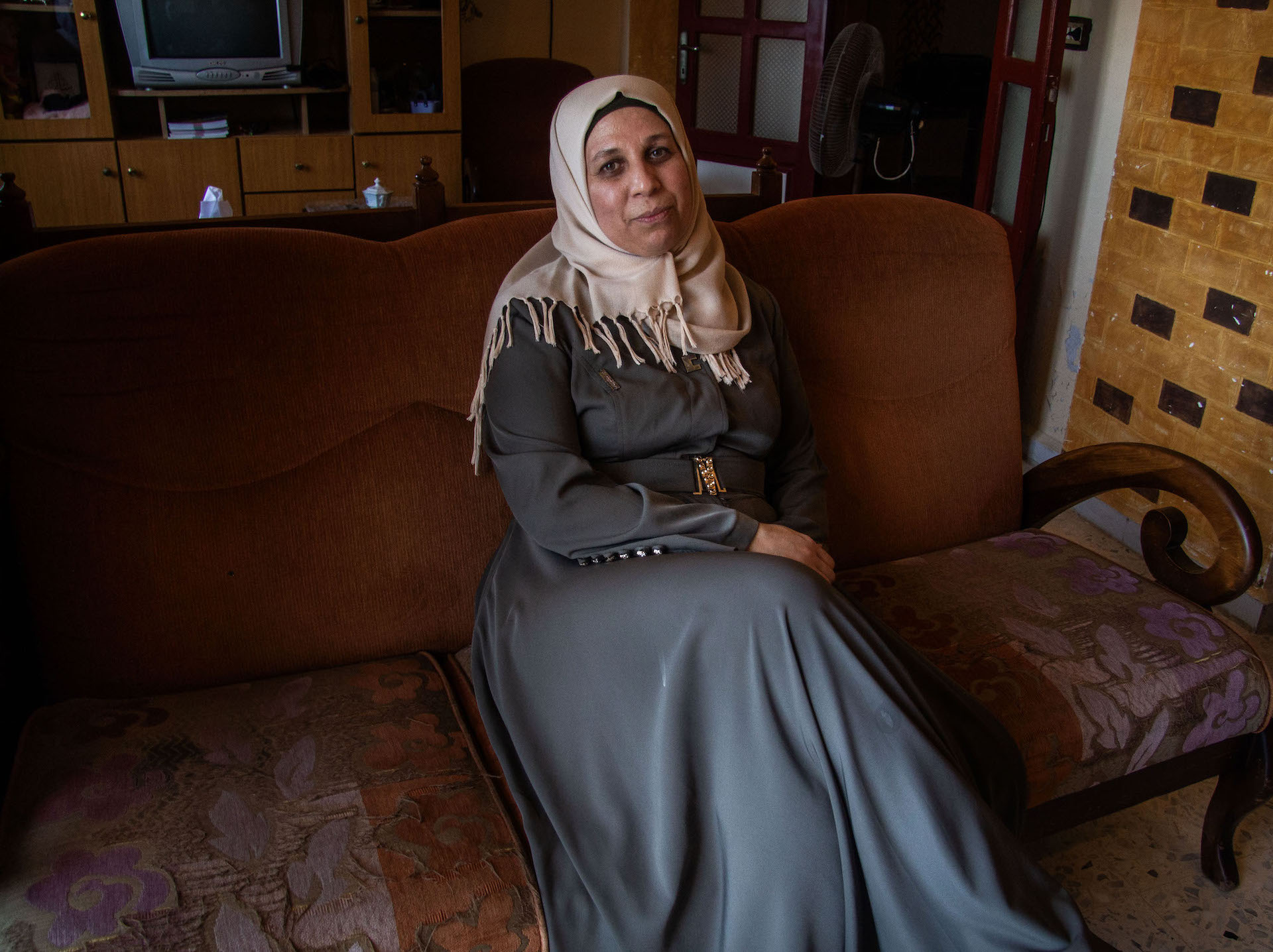
Manal al-Rayess, 44
Naameh, Lebanon
I have been in this profession for 15 years. When I was a little girl, I would pretend that I was a teacher explaining lessons to students who I would imagine sitting on empty chairs. When I grew a bit older, I would give my aunt’s son — who struggled at school — math lessons to help him pass his grade. And when I became an adult, this passion for teaching remained with me.
The passion still embraces me even now — I love to teach. Over the years, I’ve acquired different teaching methods that I apply with different students, according to their needs and learning capacities, so I’m quite a natural at this. I specialize in teaching elementary school children.
What I love about my job is being around children. When I enter the class I’m teaching, it takes me to another world. What I hate most about the job is that the workload has more than doubled over the last couple of years with the onset of the economic crisis in Lebanon. The school laid off many teachers, and their work was dumped on those who remained. I now work more hours and have to correct more exams.
Before the crisis, our wages were already considered low — I was being paid only $700 a month — and we always hoped for improvement. Now, after the crisis, my wage does not exceed $30 a month, in addition to the supplementary $100 a month that the school gives us so that teachers keep showing up to work.
But this $100 doesn’t even cover one-fourth of my monthly expenses, even if I were single. I have a chronically ill daughter who needs medication. But I am hoping the situation will improve in the coming years. I am also given LBP 250,000 ($2.70) per day for transportation, but I pay more than that to get to school every day. My transportation allowance ends up being higher than my wage at the end of the month.
Will I continue teaching? I’ve asked myself this question before, and it always makes me want to cry. I am 44 years old and only know how to be a teacher. It is very difficult to think about practicing another profession. But if push comes to shove, I might quit and stay at home, which would be better because I am at a loss working as a teacher in Lebanon right now. — as told to Sally Abou AlJoud
Malawi
POPULATION
20.4 million (2022)
TOTAL NUMBER OF TEACHERS
76,794 (2022)
AVERAGE MONTHLY PAY
129,000 Malawian kwacha (MWK, $160.55)
TEACHER-STUDENT RATIO
1:72 (secondary level, 2018)
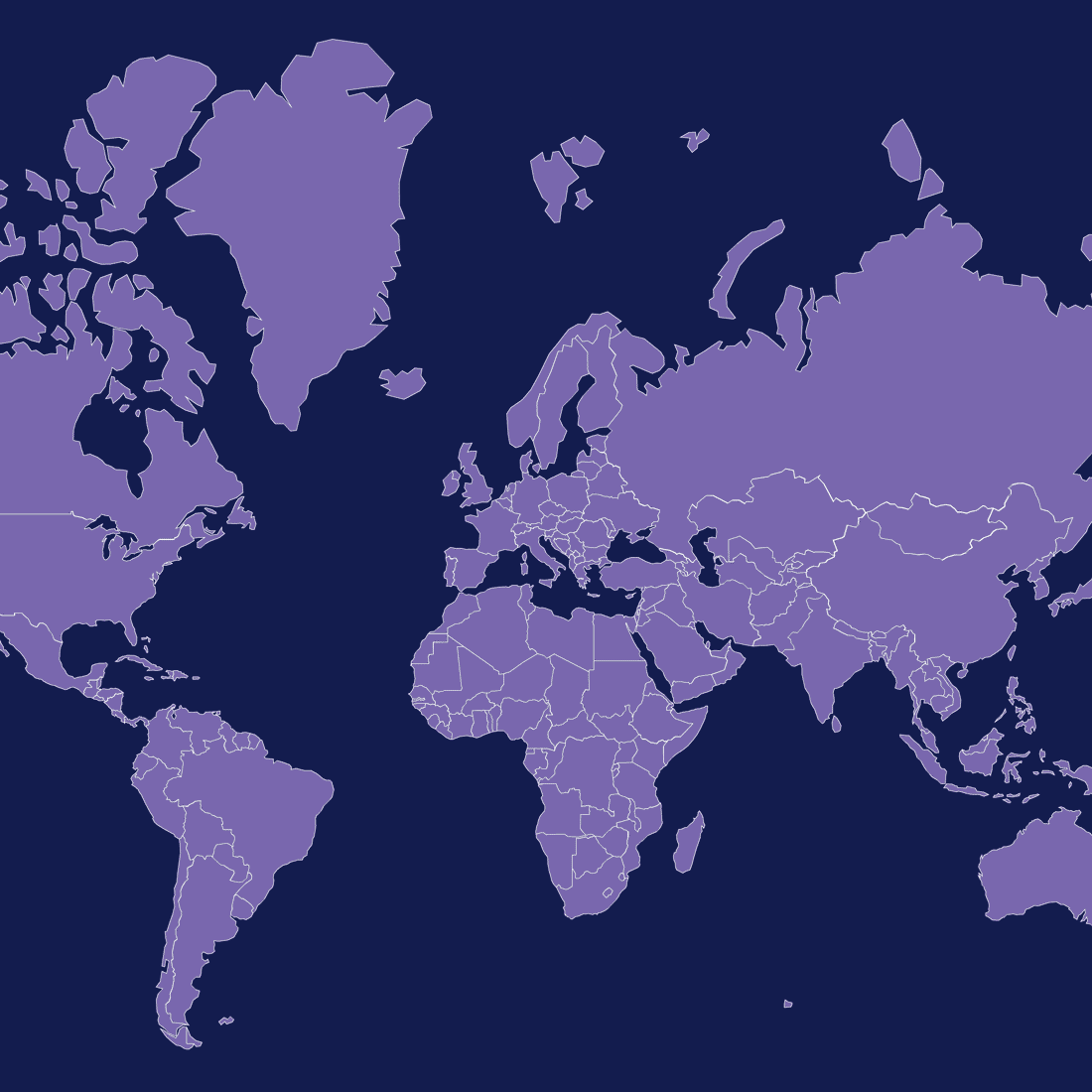
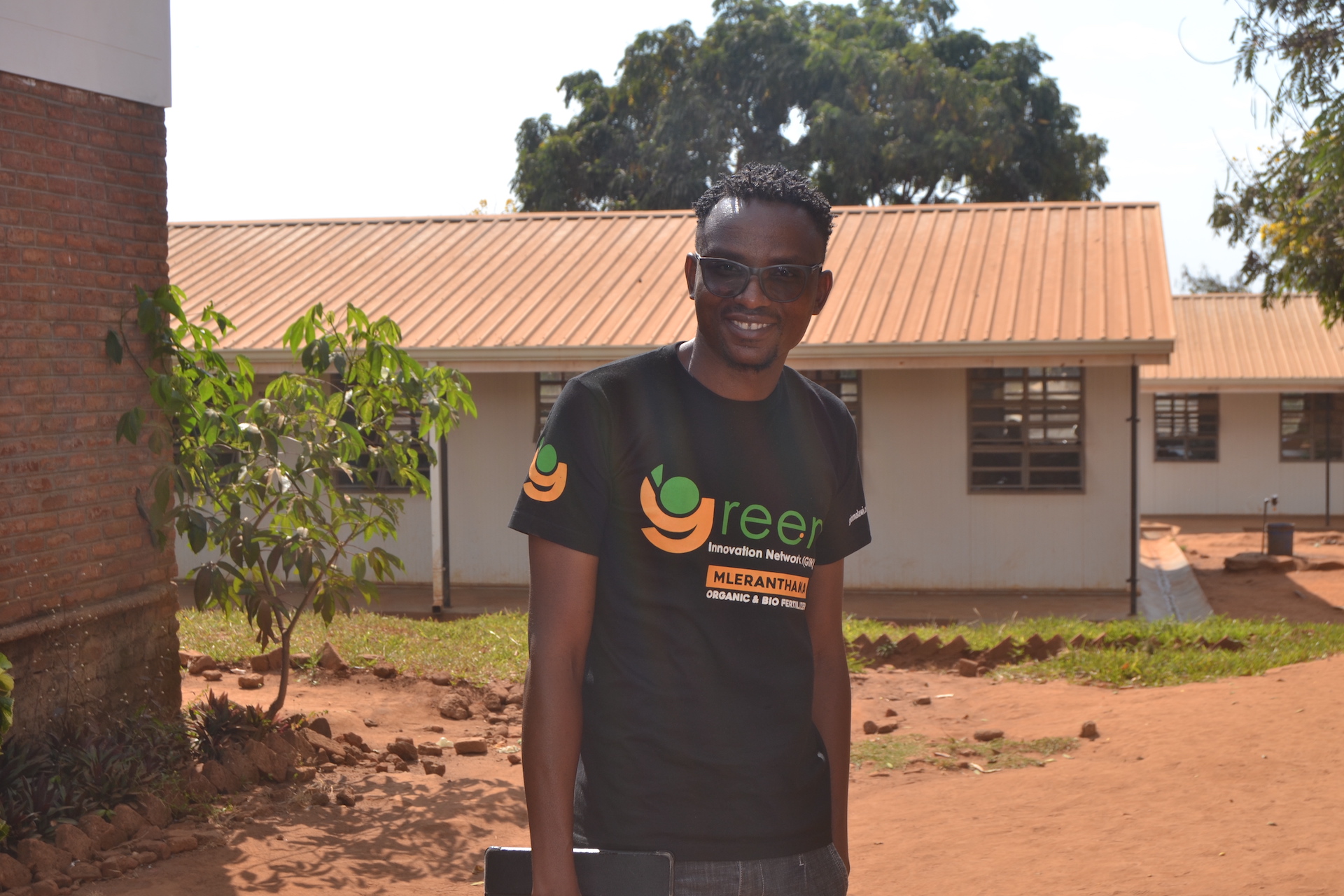
Dennis Kayira
Lilongwe, Malawi
I am a history and life skills teacher at a secondary school. I started teaching in 2021. However, teaching was never my initial career choice — I had aspired to be in the tourism sector.
Undeniably, teaching is a noble profession that enables me to share knowledge. That is what I love most about it; it is a true gift I am grateful for. However, I must confess that it is not a path I envision walking for very long. Three years from now, I will not be a teacher, that’s my plan. I say this because teaching is not financially rewarding and has a very bad effect on my personal growth. Most teachers share these sentiments, particularly those working in government schools like myself.
The pay for teachers in Malawi within the public sector is dishearteningly low. After tax deductions, my monthly salary amounts to a mere 277,000 MWK ($263). I feel sorry for myself receiving this sum because it fails to align with the escalating cost of living. As the prices of goods and services continue to soar, our salaries remain stagnant, causing great concern. It is truly shocking. In my teaching career thus far, I have witnessed only one salary increase: an 8% raise which, although appreciated, still falls far short of addressing the financial hardships the country is going through.
If I were to compare it with other professions, the gap is just huge. For example, a friend of mine who pursued a career in engineering receives a net salary of around 800,000 MWK ($759), despite both of us holding degrees. Even as a single man, managing my salary is a daunting task. The situation is even more challenging for the teachers who are married and have families to support.
In light of these circumstances, I have found solace in my side endeavor, co-founding the Green Innovation Network with my friend. This is a social enterprise that focuses on climate justice. This is one thing that I plan to fully invest in when I’m done with teaching. It also holds the potential to provide a more financially rewarding future for me. — as told to Rabson Kondowe
Hungary
POPULATION
9.7 million (2022)
TOTAL NUMBER OF TEACHERS
164,438 (2021)
AVERAGE MONTHLY PAY
826,188 Hungarian forint (HUF, $2331) (secondary level)
TEACHER-STUDENT RATIO
1:10 (secondary level, 2016)
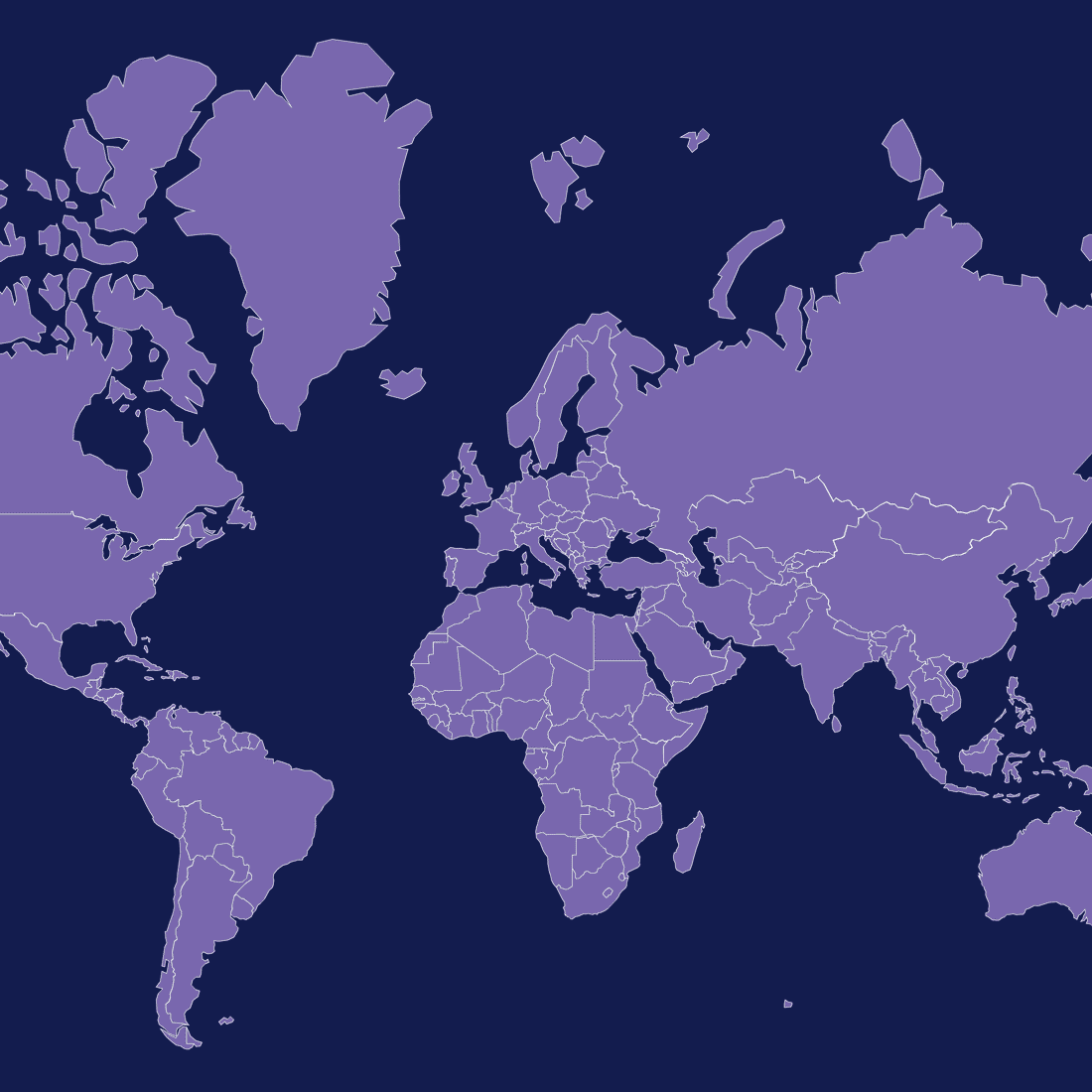

Zsófia Kozma, 38
Röszke, Hungary
My family have been teachers for generations. My mother, grandfather, grandmother and even some of my great-grandparents chose this profession. Despite this, or perhaps because of it, as a child I decided I did not want to be a teacher.
Yet, after working as a cultural organizer for a long time, my path led me to teacher training college, and I was enchanted by the world I experienced there — a place where we could work, play and create with young children. It was for the grateful eyes and hugs that I finally entered this profession. Six years ago, I became a teacher in the primary school in my home village.
What I like most is the community organization, thinking together as a team and the diversity. I have always felt able to use my strengths, such as creativity, talent management and personal development. Psychology is also close to my heart.
But the closed, centralized, bureaucratic system that currently dominates education is absolutely inappropriate. Unfortunately, our curricula are fixed and must be adapted to the National Basic Curriculum. We are no longer able to deviate from the central directive and construct a local curriculum. Education will therefore become increasingly uniform, however different the needs of, say, a primary school in the capital versus a small village.
My paycheck is 391,000 HUF ($1,114) before taxes. This is a very low amount, and it is very difficult to support a family on this. I have a young daughter who I am raising alone. I have to admit that, as I could earn more in many other careers, the idea of changing jobs has crossed my mind. The teaching profession is not respected, whether in primary or secondary schools. Since I have been in the profession, my salary has only increased by maybe 20,000 HUF, even though food is becoming more and more expensive. The teaching profession is one of the lowest paid among graduates, and I supplement my income with my own small craft business. — as told to Tamás Boros
Brazil
POPULATION
215.3 million (2022)
TOTAL NUMBER OF TEACHERS
1.4 million (2015)
AVERAGE MONTHLY PAY
10,915 Brazilian reais (BRL, $2,227) (secondary level)
TEACHER-STUDENT RATIO
1:17 (secondary level, 2017)
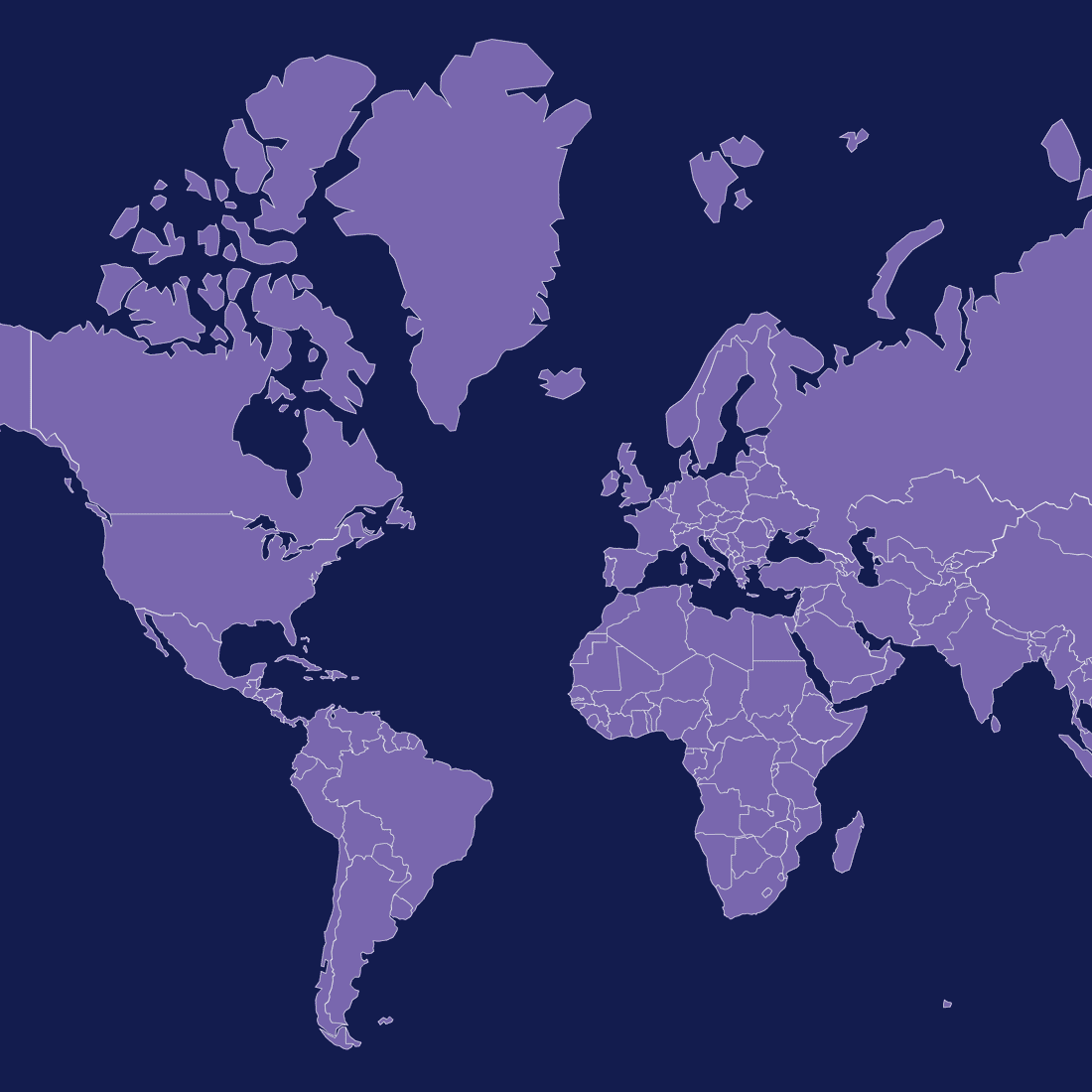

Jozi Belizario, 35
São Paulo, Brazil
I’ve been a preschool teacher since 2018. I work at a school on the outskirts of Brazil’s biggest city. Most of my students are Black and from very humble backgrounds. It is a daily challenge to transform the realities of children who will be the future of this country.
I try to fight structural racism within the classroom. I want my students to leave with an awareness of who they are. It’s not just about teaching letters, doing math. It’s about helping them see themselves as part of society, as capable of achieving anything.
But education is very challenging in Brazil. Teaching is a very diminished profession, with bad working conditions. Inside the classroom, most of the time, teachers themselves pay for materials. During the pandemic, I bought masks and gel alcohol because the school didn’t have them. It’s inevitable that we lose a little shine to teach because in addition to earning very little, I leave half of my money at school.
Today I earn around 4,000 BRL ($890) each month. With this I can pay the monthly bills and buy food for my two children and me. But I feel very undervalued. I wish I could go on vacation or go to a restaurant on the weekend with my kids without worrying about how much money I have in my account. And this is a problem for all the teachers in my school. There’s one colleague that sells sweets, another food, and a third that sews. We do all this to have enough money.
In addition to being a teacher, I am a businesswoman. I created the first e-commerce business for Black dolls in Latin America. I always wanted to give my students Black dolls; positive representation was missing in their lives. But I couldn’t find them in any store here in Brazil. That’s how the Aneesa dolls were born back in 2017.
What was supposed to be a gift became my passion. Per month, my business earns 15,000 BRL, which supplements my teaching income. With Aneesa, I’m able to teach my students to dream. Black children need to be armed with arguments at school because they will inevitably face racism when they grow up. School cannot just be a place for pragmatic content — it needs to be a mirror for life. — as told to Edgar Maciel
Ohio, United States
POPULATION
11.8 million (2022)
TOTAL NUMBER OF TEACHERS
99,077 (2023)
AVERAGE MONTHLY PAY
TEACHER-STUDENT RATIO
1:16 (all levels, 2023)
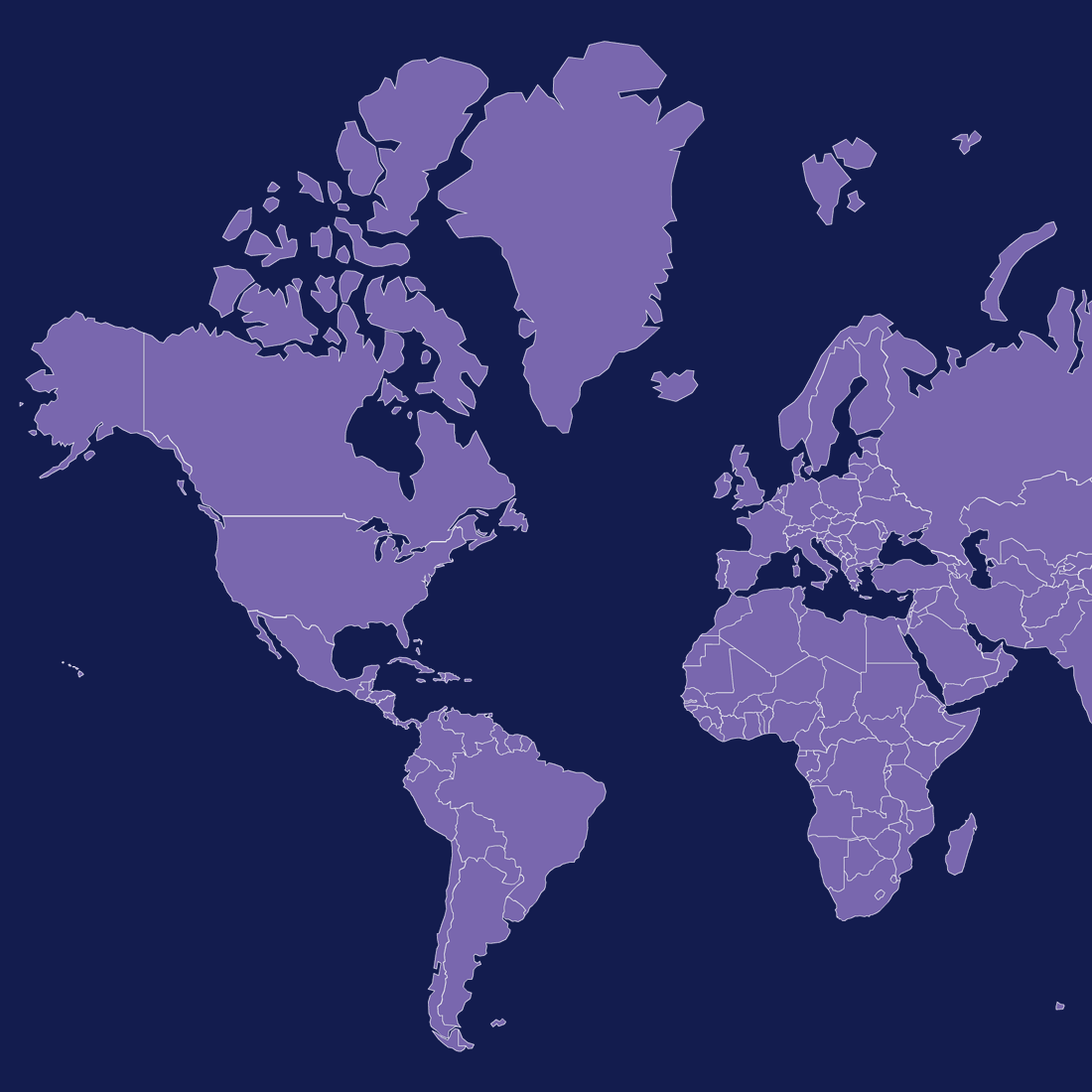
Read more
Sign up to keep up to date with ReThink Q.




